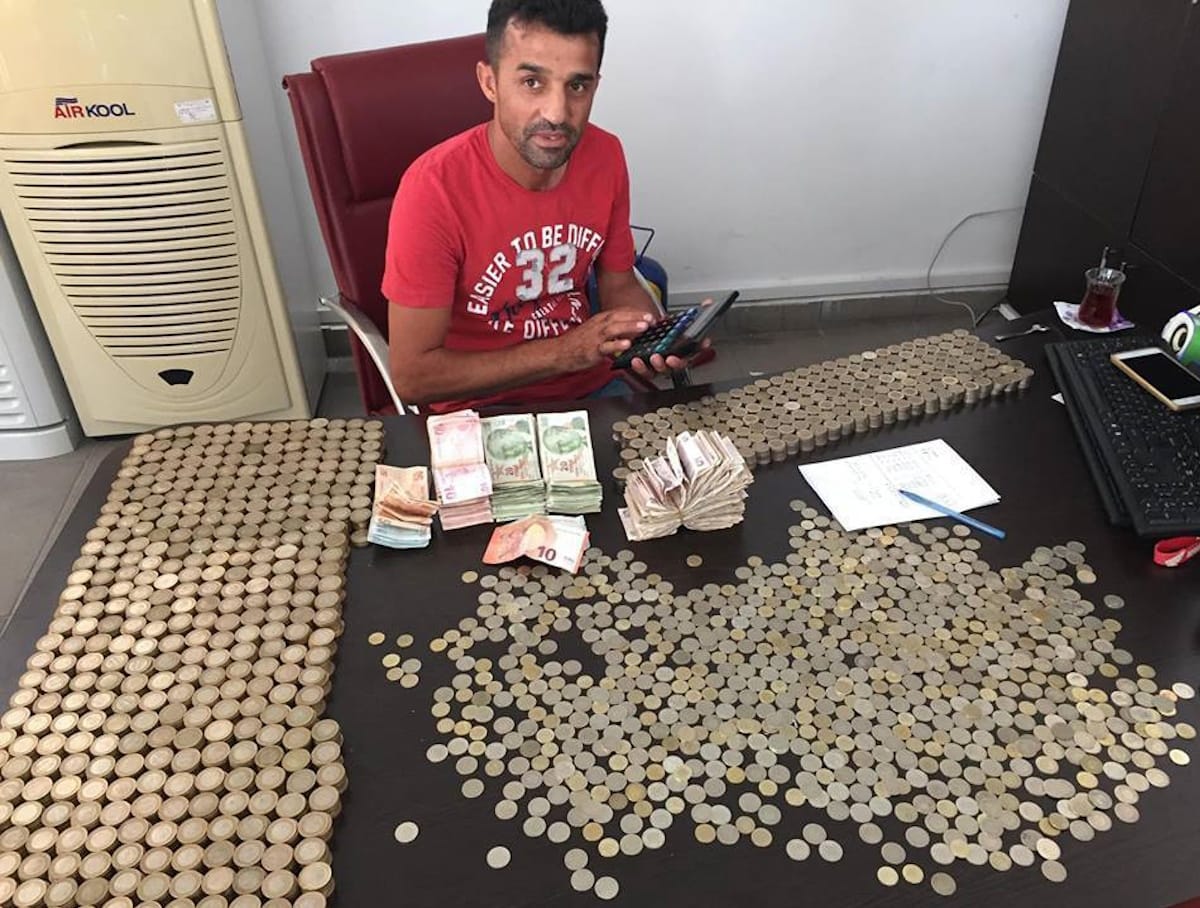For several years, social network users have been distributing photographs of a man for whom giving up a bad habit allegedly became fatal. We checked how true this information is.
In the photographs you can see a man with numerous coins and banknotes on the table in front of him. The caption to the pictures states that this man decided to quit smoking and for six years saved money every day equal to the cost of a pack of cigarettes. The savings allowed him to buy a car, which he used in an accident a few days later to his death. “Checkmate, fighters for a healthy lifestyle,” conclude the authors of such publications.
This story has been shared by users over the past few years Facebook, Telegram, X, "Zen"and other social networks and blog platforms, but it gained the greatest popularity on VKontakte: at the time of writing this analysis, publications with 764,000, 185,000 And 125,000 views. Also, pictures with similar captions can be found in the form of memes on entertainment portals (“AyDaPrikol", "Gee gee jokes").
In one of the viral photos, behind the man’s back you can see a portrait of Mustafa Kemal Ataturk, the first president of Turkey. His image is visible on some of those caught in the frame banknotes. From this we can conclude that, most likely, the pictures were taken in Turkey.

Indeed, if you use Google's reverse image search service, you can find straightaway some publications with these shots in the Turkish-language press. They are mostly dated spring 2017.

According to the articles, the man's name is Mehmet Tok, at the time of writing the articles he was 42 years old and worked as an air conditioner salesman in the Turkish city of Denizli. The man started smoking at the age of 12, and in 2009 he began to experience chest pain and numbness in his arm. After studying the results of medical research, the doctor advised Tok to give up tobacco. Then the Turk decided to build a large piggy bank, into which he threw money every evening in the amount of the cost of two packs of cigarettes - his daily allowance. So he wanted to check how much financial damage his bad habit had caused him.
Judging by the video, became popular (over 3 million views) on YouTube back in 2016, Tok did not wait many years before opening the piggy bank - there were several of them at once, and by the time the video was filmed, the fourth one was already filled. The previous three, according to Tok, helped him buy two cars and one racing motorcycle. This confession seems realistic. According to WHO, the price of the most popular cigarettes in Turkey in 2009–2016 was about $3–3.5 per pack, that is, annually, using the Tok method, you could save about $2200–2500—enough amount to buy an inexpensive car every few years. In 2017, a man reported about 70,000 Turkish lira accumulated over eight years - about $20,000 at the exchange rate at that time, which coincides with our estimate.
Already here the captions for viral photos are not true. Their authors claim that Tok died in a car accident a few days after purchasing the car (apparently the first one, no later than 2016). However, the Turk directly spoke about the purchase of three vehicles, and in video 2020, posted on the same YouTube channel as the first one, the man, according to him, was already opening his sixth piggy bank. In the same year, a TV channel report was released Demirören, in which Tok said that he now devotes his free time to making piggy banks - he gives them to others and thereby encourages fellow citizens to lead a healthy lifestyle.
In 2024, Tok continues to maintain his social media profiles. So, the last post at the time of writing this analysis in my Facebook the man posted on April 7.

Apparently, the claim that Tok died shortly after he bought his first car went viral after a post appeared on the platform in 2019 9GAG (in the same year it was for the first time spread in Russian-language social networks). That is, both then and now, such publications, even if based on real history, had a rather indirect relationship to reality.
Cover photo: social networks
Read on topic:
If you find a spelling or grammatical error, please let us know by highlighting the error text and clicking Ctrl+Enter.






